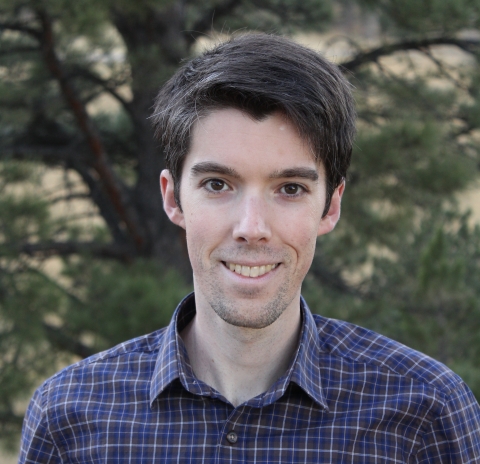Significant and extreme weather events linked to global warming in 2021 took climate scientists, like ARCS Alumnus Daniel Swain, by surprise—not because they occurred, but because scientists predicted it would be decades before the US would see those devastating effects.
A climate scientist with the Institute of the Environment and Sustainability at the University of California, Los Angeles (UCLA) and the National Center for Atmospheric Research, Swain is recognized among fellow scientists, weather enthusiasts, and the media for his work in global warming and its effects on climate change and extreme weather phenomena.
An ARCS Scholar in 2015 while studying earth system sciences at Stanford University, Swain says he’s seen significant global climate extremes since ARCS National interviewed him in August 2020. The intense phenomenon included a devastating wildfire a half-mile from his home in Boulder, Colorado, a flash flood in New York City, multiple floods along the Louisiana panhandle, and a heatwave in the Pacific Northwest.
A catastrophic wildfire burns near Boulder, Colorado.
The fire occurred in December 2021about a half-mile
from Daniel Swain’s home. (Courtesy: Daniel Swain)
“Portland, Oregon reached temperatures up to 120 degrees Fahrenheit and the glacial valleys of British Columbia hit temperatures you usually only see in places like Death Valley, California. That event shocked a lot of climate scientists because it was not predicted to happen until decades into the future—and it happened last year. There is effectively a 0 percent chance that Seattle, Portland, and Vancouver could have been as hot as they were if not for climate change. So, there is no question if it is possible anymore, it is happening now,” Swain states.
[To view ARCS first article with Daniel Swain, please visit this page.]
The ARCS Alumnus explains the earth continues to bounce from one weather extreme to another: record breaking high temperatures, droughts, wildfires, and heavy rainfall. Almost all those events have a direct connection to climate change and global warming, Swain says.
Climate scientists study variables in the wild weather phenomena, such as what type of meteorological events are taking place and where are they occurring? According to Swain, that information determines whether an event is related to climate change or a natural occurrence in the climate system.
Currently, Swain and a research team at UCLA are analyzing the risk of megafloods in areas of California that are also prone to droughts and wildfires. Two extreme weather events related to climate change could devastate a portion of the state already in peril. The ARCS Alumnus is also studying ways to harness wildfires by using prescribed fires that could reduce the risk to human life and the surrounding ecological system.
Despite the present, disastrous effects of climate change, Swain says there are ways to reverse the damage to our planet.
“The long-term problem of global warming is something that remains within our power to solve,” Swain states. “If we stopped emitting carbon into the atmosphere this year, we would start to see positive effects by the end of the decade. The decisions we make over the next decade are going to really dictate in the next twenty to thirty years whether we will see warmer, record-breaking temperatures, or whether we stabilize our climate and stop seeing an increase in extreme events.”

